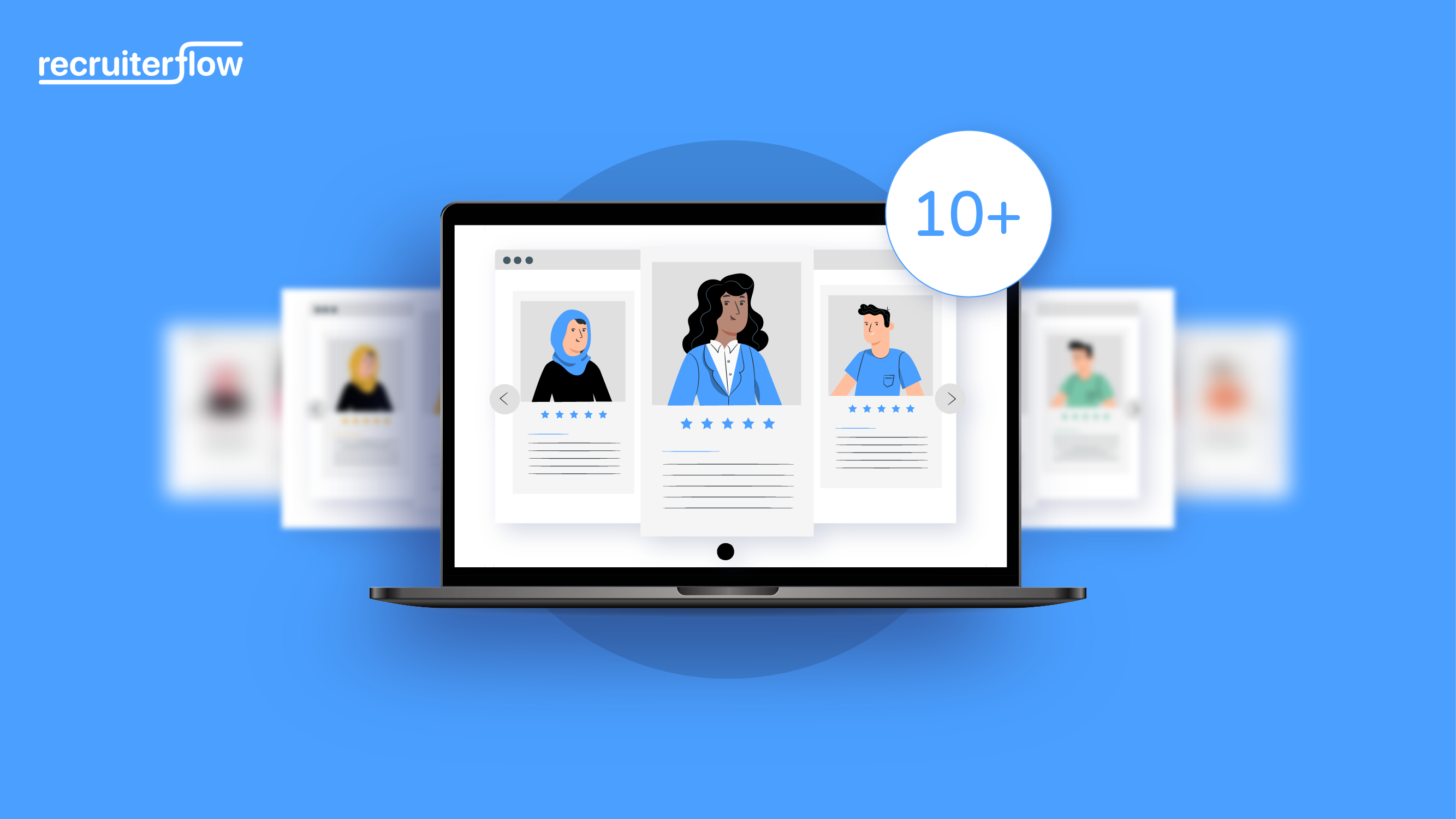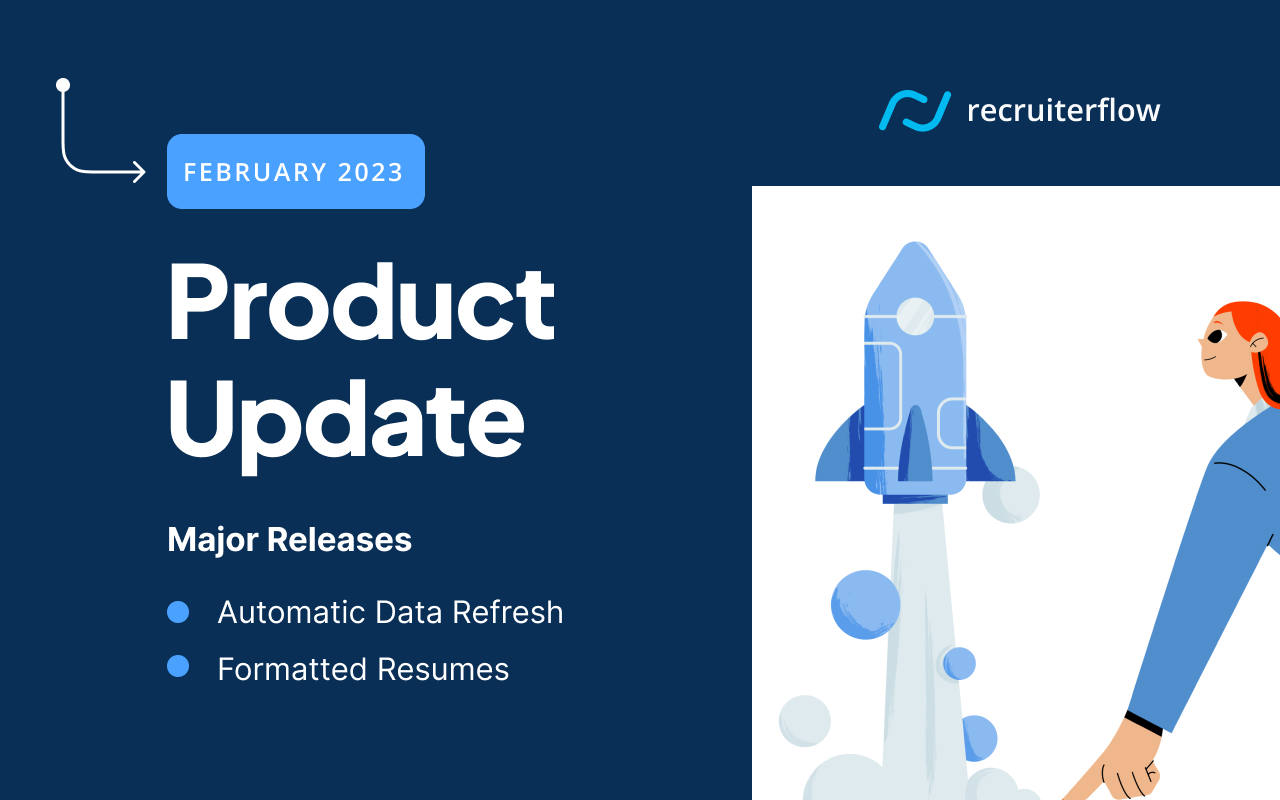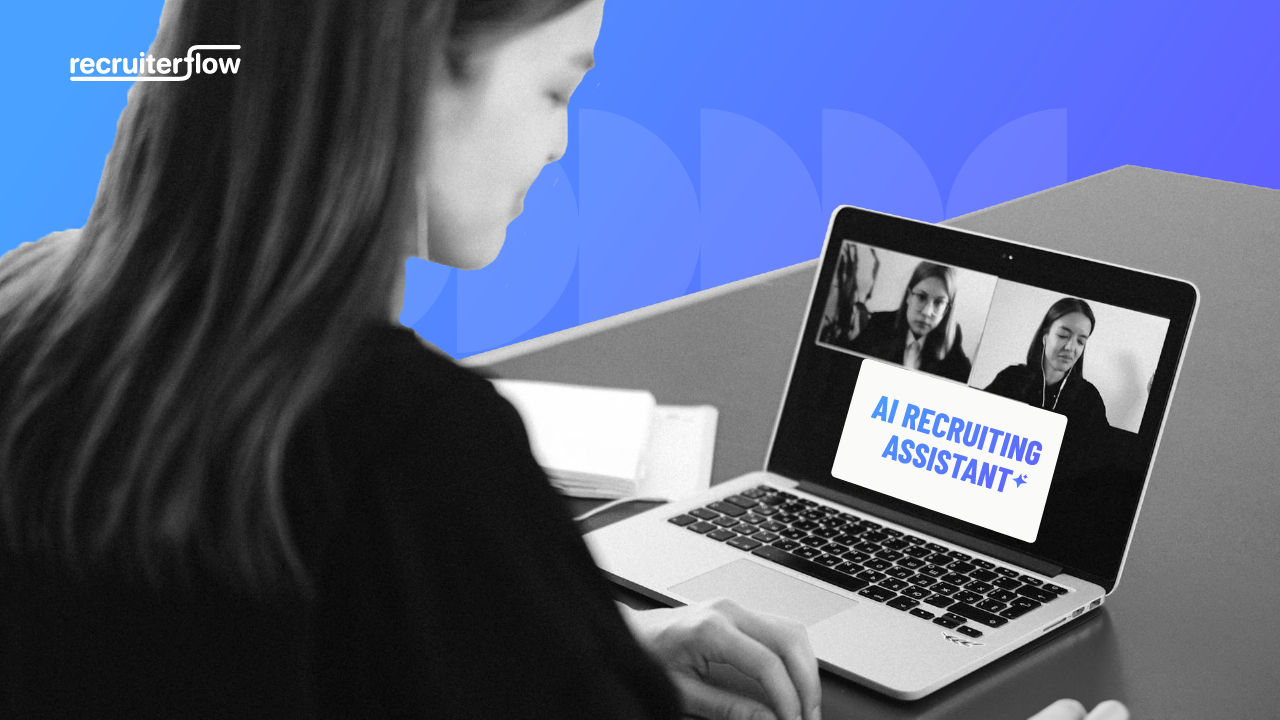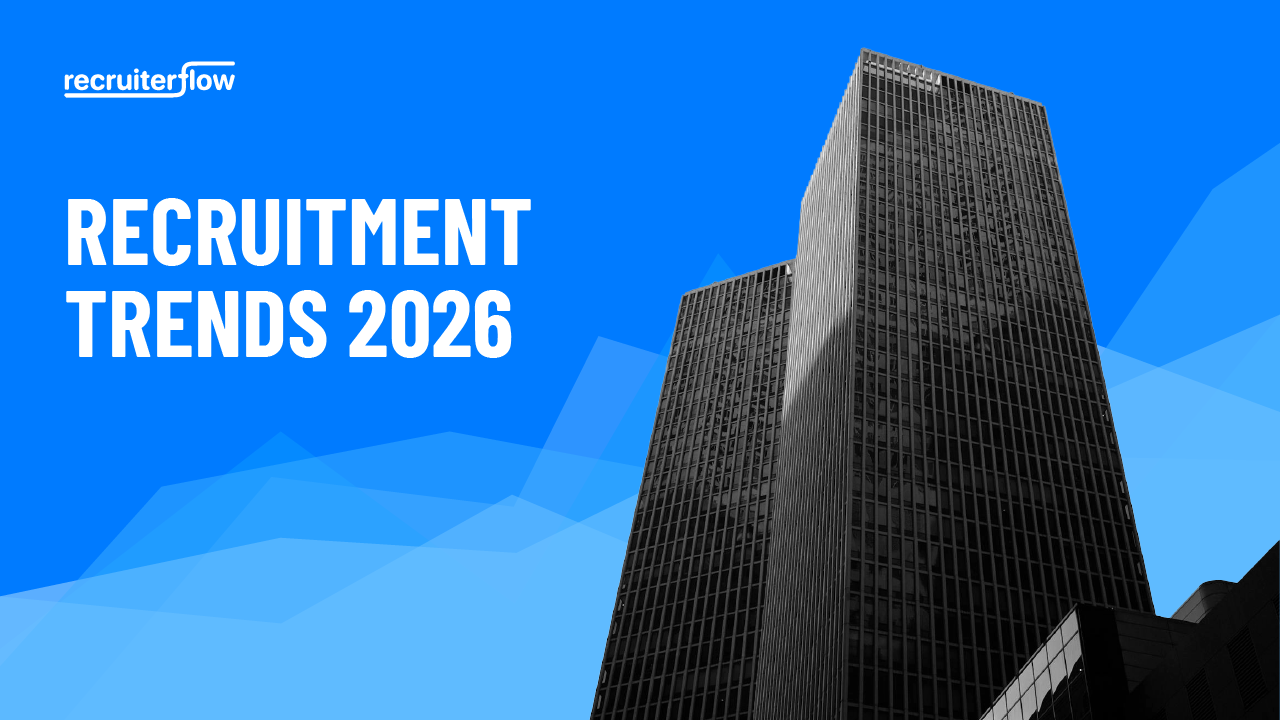
Future of Recruiting for Recruitment Agencies in 2025

In a field where ‘change’ is the only constant, you adapt or become obsolete. (There’s no in-between!)
Think about it: we’re way past the “post a job, get applicants, fill the job” era.
Now, recruiting is about building relationships, predicting needs before they’re spoken, and knowing exactly what tools will keep you ahead of the pack.
With emerging tools, shifting candidate expectations, and a workforce that’s pickier than ever, recruitment agencies can no longer afford to play catch-up.
So, where’s the industry heading? Let’s look at the trends reshaping the future of recruiting—and how the smartest agencies can thrive by staying just a step ahead.
What will be the Future of Recruiting?
The global recruitment industry is expected to hit $49.2 billion by 2030, growing steadily at 5% annually.
This growth is driven by rapid technological advancements, a renewed push for on-site work, increased competition, and evolving workforce demographics.
So, what’s in it for recruitment agencies? They will need more advanced recruiting tools (In fact, 68% already plan to invest in better RecTech by 2025), agile strategies, and skills to meet their clients’ and candidates’ needs.
Creating an engaging and consistent experience for candidates, clients, and internal teams will be more important than ever—demanding clarity, consistency, and strong employer branding across digital platforms?
In 2025, recruitment agencies won’t just fill positions; they’ll become strategic partners to their clients, helping them adapt to new hiring norms and employee expectations. For those who follow these recruitment trends correctly, rewards are huge.
AI’s Role in Recruitment
AI recruiting is already big, but it’s going to be $1.05 billion BIG by 2032.
From candidate AI sourcing to decision-making, AI is transforming every step of the hiring process—and this impact will grow stronger in the years to come.
According to Korn Ferry’s latest Talent Acquisition Trends report, 67% of recruiters ranked increased AI usage as the #1 anticipated trend of 2025.
But here’s the kicker: Many recruiters think AI is not delivering what they really hoped for.
4 in 10 professionals say that AI makes the recruitment process impersonal, and 25% fear that algorithmic bias leads to unfair hiring decisions.
Does this change anything? Yes!
As AI advances, it will likely handle more nuanced tasks like emotional profiling, making candidate engagement personalized and efficient.
Yet, its true potential will be realized only when recruiters strike the right balance between AI, automation, and human touch.
What else? Below are five recruitment trends that will define the future of recruiting in 2025:
1. New Skills in Demand
The digital transformation across industries has raised demand for specialized skills, like:
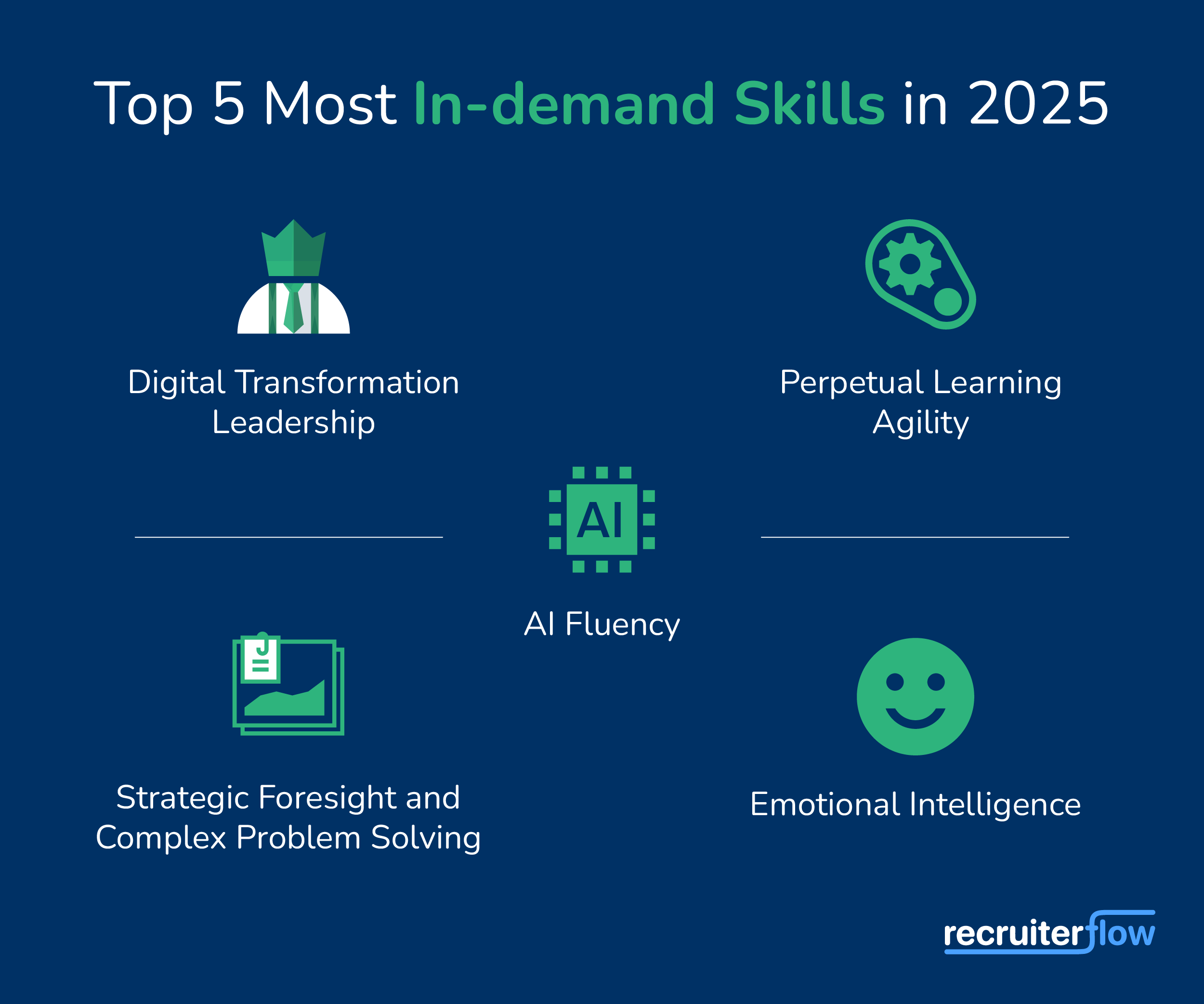
Roles in software development, cybersecurity, and data analysis are at an all-time high.
For recruiters, this demand brings dual responsibility: building a ‘proactive pipeline’ of candidates with expertise in these fields and also upskilling themselves.
A keen understanding of AI tools, sustainability principles, relationship management, and the dynamics of outsourced web development will position them as strategic advisors and help better anticipate future demands.
In fact, LinkedIn data highlights a 14% increase in recruiters adding AI-related skills to their profiles in just one year. This suggests that AI literacy will be a baseline expectation for talent across industries.
2. Using Data to Improve Quality of Hires
Quality of hire has always been a primary goal for recruiters, but modern data analytics is making it more measurable.
Recruiting metrics such as time-to-hire, candidate satisfaction scores, and long-term performance are now part of how agencies determine a hire’s success.
In fact, professionals who use big data and analytics see a 15% increase in productivity, and improved ability to find candidates who align better with their client’s needs.
By 2025, more data-driven approaches will likely be standard practice, with real-time feedback loops allowing agencies to pivot hiring tactics based on concrete insights.
AI and machine learning tools will analyze everything from past employee performance to market trends, enabling more informed and objective hiring decisions.
3. Agility in Modern Recruitment
With rapid technological advancements, shifting market conditions, and evolving candidate expectations, recruitment teams must embrace flexibility and speed in their processes.
A 2024 study by Deloitte highlights that companies with agile recruitment processes see a significant acceleration in their hiring speed compared to those relying on traditional methods. This includes using real-time sourcing platforms, automated outreach, and video interviewing tools.
By 2025, recruitment agencies must accommodate the “always-on” hiring mindset, where sourcing talent doesn’t stop between hiring cycles.
4. Flexible Work and Recruitment
One of the most significant shifts in the past few years has been the increased demand for flexible work options.
According to a 2024 FlexJobs survey, 58% of job seekers listed flexibility as one of their top priorities, surpassing salary in importance.
Recruitment teams must adapt by offering flexible work arrangements upfront to attract top talent.
This trend will be especially evident in industries such as tech, marketing, and customer service, where remote work is more feasible.
Companies with established remote-first policies will attract a broader talent pool and retain employees longer. Some even leverage nearshore IT options to access skilled professionals in different time zones, ensuring round-the-clock productivity and seamless collaboration across global teams.
Also, check out our blog to explore the key benefits of using AI in recruitment.
5. Recruiting Gen Z Talent
Gen Z is expected to comprise 30% of the workforce by 2025. This generation brings a unique set of expectations, emphasizing work-life balance, purpose-driven work, and technologically advanced tools.
According to the 2024 Deloitte Global Gen Z and Millennial Survey:
To recruit Gen Z, companies will need to overhaul their employer branding to emphasize inclusivity, social responsibility, and innovation.
Recruitment processes will need to be more digital-first, leveraging platforms like TikTok and Instagram to engage with younger candidates in organic and engaging ways.
Artificial intelligence is poised to play a transformative role in how recruitment evolves over the next decade. If you’re curious about what this might look like, check out our detailed take on the Future of AI in Recruitment
Preparing for the Future of Recruitment
The future of recruiting is fast, flexible, and tech-savvy. Agencies that are quick to adapt not only better meet client demands but are also positioned as market leaders.
So, what should you focus on in 2025?
Choose technology with purpose: AI is great, but only when it makes the process better for everyone. Aim for tools that enhance, not complicate, your hiring workflow.
Keep it human: Automated tools might be efficient, but they’re no substitute for real connection. Make the experience feel personal, even if you’re using tech behind the scenes.
Adapt to changing skills: With the rise of tech-driven roles, recruiters who can recognize emerging skills, even without formal credentials, will stand out.
Ready to get ahead? Recruiterflow offers tools that scale with you so YOU stay flexible, relevant, and at the best of it all!
Learn more about how Recruiterflow here!
Recruitment
